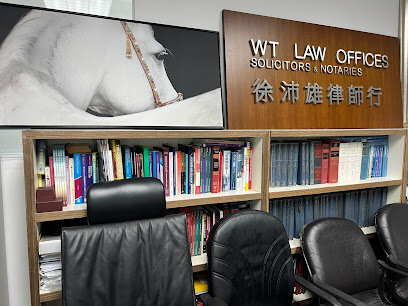Best Native People Lawyers in Hong Kong
Share your needs with us, get contacted by law firms.
Free. Takes 2 min.
Or refine your search by selecting a city:
List of the best lawyers in Hong Kong
About Native People Law in Hong Kong:
Native People in Hong Kong refer to those who are recognized as indigenous inhabitants of the New Territories, including the Hoklos, the Puntis, and the Hakka communities. These communities have special rights and privileges under Hong Kong law due to their status as indigenous people.
Why You May Need a Lawyer:
You may need a lawyer if you are a Native Person in Hong Kong facing issues related to land rights, inheritance disputes, or other legal matters specific to indigenous communities. A lawyer can help you navigate the complex legal system and protect your rights.
Local Laws Overview:
The key aspects of local laws relevant to Native People in Hong Kong include the New Territories Land Ordinance, which governs land rights and inheritance within indigenous communities. Additionally, the Basic Law of Hong Kong recognizes and protects the rights of indigenous people in the region.
Frequently Asked Questions:
1. What rights do Native People in Hong Kong have?
Native People in Hong Kong have special rights and privileges related to land ownership, inheritance, and cultural heritage.
2. Can Native People in Hong Kong own land outside the New Territories?
Native People in Hong Kong can own land outside the New Territories, but they may not have the same rights and protections as they do within their traditional territories.
3. How can I prove my indigenous status in Hong Kong?
To prove your indigenous status in Hong Kong, you may need to provide documentation such as birth certificates, land records, and family histories.
4. What legal protections are available to Native People in Hong Kong?
Native People in Hong Kong are protected by the Basic Law, which recognizes and safeguards their rights as indigenous inhabitants of the region.
5. Can non-Native People in Hong Kong acquire indigenous status?
Non-Native People in Hong Kong cannot acquire indigenous status, as it is based on ancestry and traditional ties to the New Territories.
6. Are there restrictions on land development in the New Territories?
There are restrictions on land development in the New Territories to protect the rights and interests of indigenous communities.
7. Can Native People in Hong Kong participate in government decisions?
Native People in Hong Kong have the right to participate in government decisions that affect their communities, including land development and cultural preservation.
8. Are there specific laws protecting the cultural heritage of Native People in Hong Kong?
There are specific laws in Hong Kong that protect the cultural heritage of Native People, including the Antiquities and Monuments Ordinance and the Hong Kong Planning Standards and Guidelines.
9. What should I do if my indigenous rights are violated?
If your indigenous rights are violated in Hong Kong, you should seek legal advice from a qualified lawyer who specializes in Native People law.
10. How can I learn more about the history and culture of Native People in Hong Kong?
You can learn more about the history and culture of Native People in Hong Kong by visiting local museums, attending cultural events, and engaging with indigenous communities.
Additional Resources:
For more information on Native People law in Hong Kong, you can visit the Hong Kong Indigenous website or contact the Indigenous Peoples Commission.
Next Steps:
If you require legal assistance related to Native People in Hong Kong, it is important to seek advice from a lawyer who has experience in handling cases involving indigenous rights and land issues. You can contact the Hong Kong Bar Association for a referral to a qualified lawyer in this field.
Lawzana helps you find the best lawyers and law firms in Hong Kong through a curated and pre-screened list of qualified legal professionals. Our platform offers rankings and detailed profiles of attorneys and law firms, allowing you to compare based on practice areas, including Native People, experience, and client feedback.
Each profile includes a description of the firm's areas of practice, client reviews, team members and partners, year of establishment, spoken languages, office locations, contact information, social media presence, and any published articles or resources. Most firms on our platform speak English and are experienced in both local and international legal matters.
Get a quote from top-rated law firms in Hong Kong — quickly, securely, and without unnecessary hassle.
Disclaimer:
The information provided on this page is for general informational purposes only and does not constitute legal advice. While we strive to ensure the accuracy and relevance of the content, legal information may change over time, and interpretations of the law can vary. You should always consult with a qualified legal professional for advice specific to your situation.
We disclaim all liability for actions taken or not taken based on the content of this page. If you believe any information is incorrect or outdated, please contact us, and we will review and update it where appropriate.
Browse native people law firms by city in Hong Kong
Refine your search by selecting a city.















